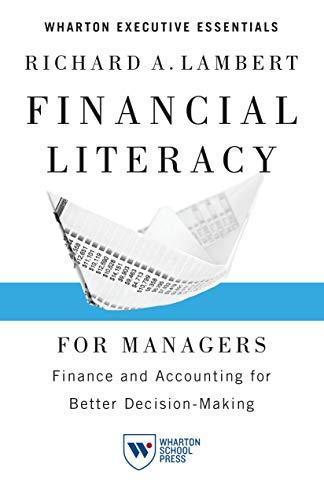Question
Investment opportunity A will require a principal of $1,000 and will yield $200 of the course of 4 years. Investment opportunity B will require a
Investment opportunity A will require a principal of $1,000 and will yield $200 of the course of 4 years. Investment opportunity B will require a principal of $1,600 and will pay $400 over a five year period. Which of the following statements is true?
-Investment A has a higher average annual rate of return than does Investment B. Ignore the time value of money.
-Given this information, the average annual rates of return cannot be computed.
-Investment A has a lower average annual rate of return than does Investment B.
-The average annual rates of return of the two investment opportunities are equal.
Refer to previous question. Suppose that Investment A was a piece of land that you purchased for $1,000 and sold for it $1,200 four years later. Assuming you are in the 35% tax bracket and long term capital gains are taxed at 20%, your net average annual rate of return on investment would be:
-1.75%
-4.25%
-3.25%
-4%
Refer again to question. Suppose that Investment B was a conventional bond that pays $80 yearly. If you held the bond for the entire 5 years, your net average annual rate of return on investment would be?
-3.25%
-1.75%
-4.25%
-4%
Step by Step Solution
There are 3 Steps involved in it
Step: 1

Get Instant Access to Expert-Tailored Solutions
See step-by-step solutions with expert insights and AI powered tools for academic success
Step: 2

Step: 3

Ace Your Homework with AI
Get the answers you need in no time with our AI-driven, step-by-step assistance
Get Started


